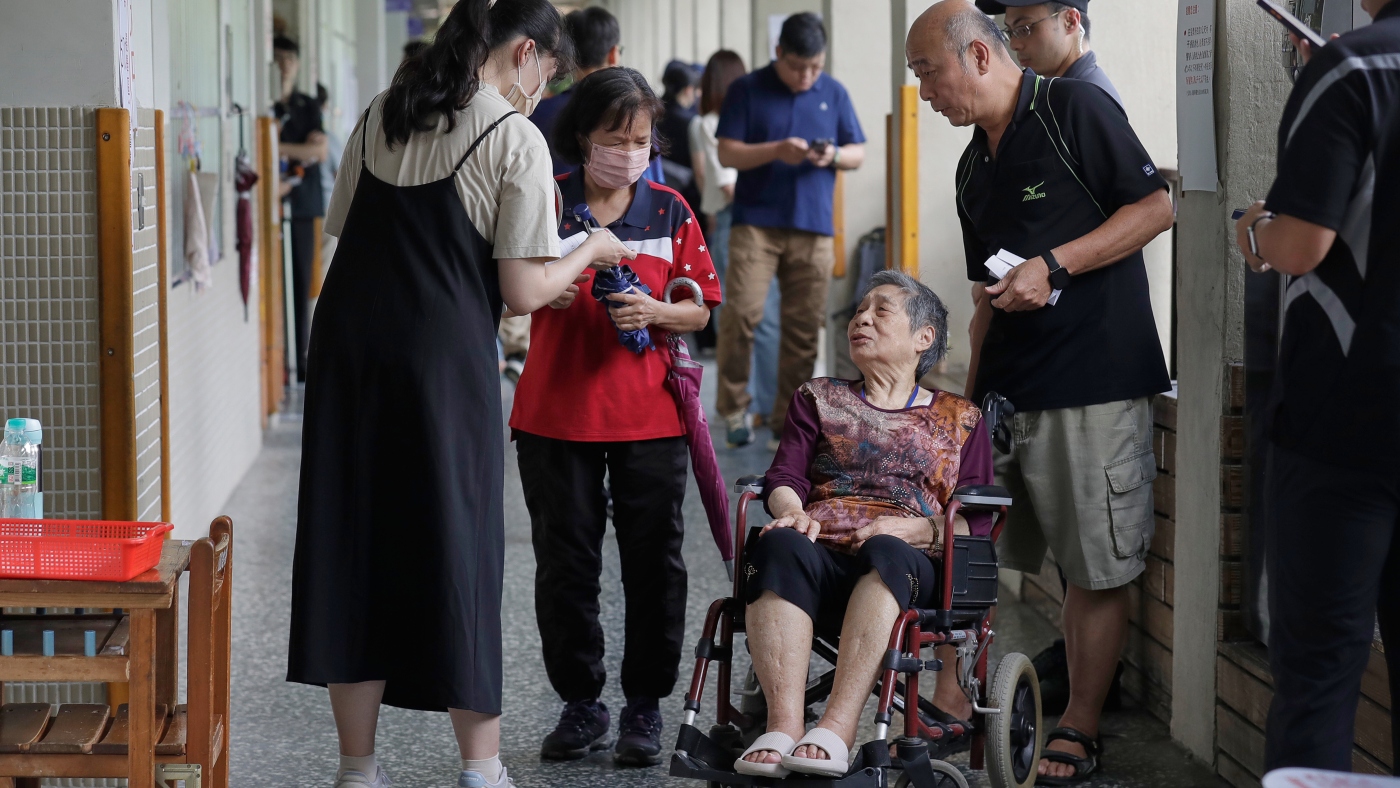Taiwan’s Recall Election: A Test of Political Tides
Introduction: A Political Crossroads
Taiwan’s recent recall election, targeting a significant portion of its opposition lawmakers, has become a pivotal moment in the island’s political landscape. The failed attempt to remove members of the Nationalist Party (KMT) from office has revealed much about the complexities of Taiwanese politics, the delicate balance of cross-strait relations, and the resilience of Taiwan’s democratic institutions. This event is not just a domestic political maneuver but a reflection of the broader tensions and aspirations that define Taiwan’s future.
The Backdrop: A Divided Electorate
Taiwan’s political landscape is a tapestry woven with threads of national identity, historical memory, and geopolitical strategy. The island is deeply divided between those who advocate for closer ties with mainland China and those who push for greater independence. The Democratic Progressive Party (DPP), currently in power, represents the latter, while the KMT and the Taiwan People’s Party (TPP) form a significant opposition bloc. This division is not merely ideological but deeply personal, reflecting the varied experiences and visions of Taiwan’s citizens.
The DPP’s victory in the presidential election underscored the strength of the pro-independence sentiment, but the KMT’s continued presence in the legislature highlights the enduring influence of the pro-China faction. This duality creates a political environment where compromise is often elusive, and every election becomes a referendum on Taiwan’s future. The recall election was no exception, serving as a microcosm of the broader struggle between these two visions.
The Recall Effort: Motives and Objectives
The recall effort was an ambitious attempt to remove about one-fifth of the KMT lawmakers from office. The motives behind this initiative were multifaceted, reflecting both strategic and ideological considerations. For the DPP and its supporters, the recall represented an opportunity to shift the balance of power in the legislature, potentially allowing the party to advance its policy agenda more effectively. The KMT’s perceived pro-China stance was a significant factor driving the recall effort, with proponents arguing that removing these lawmakers would safeguard Taiwan’s democratic values and autonomy.
However, the recall was not solely about cross-strait relations. Local issues and dissatisfaction with individual lawmakers also played a role. Some voters may have been motivated by specific grievances, such as perceived corruption, ineffectiveness, or a lack of responsiveness to local concerns. The recall effort, therefore, was a complex interplay of national and local politics, reflecting the multifaceted nature of Taiwanese democracy.
The Outcome: A Rejection of Change
Despite the efforts to unseat the KMT lawmakers, Taiwanese voters ultimately rejected the recall bid. This outcome is significant for several reasons. First, it indicates that a substantial portion of the electorate is not in favor of a drastic shift in the political landscape. It suggests that many voters are either satisfied with the current representation or unconvinced by the arguments made by the recall proponents. The failure of the recall could be interpreted as a sign of stability in Taiwan’s political system, or perhaps a cautionary message to the DPP that aggressive tactics aimed at marginalizing the opposition may not be well-received by the broader electorate.
The outcome also highlights the resilience of the KMT and its continued ability to garner support from a significant segment of the population. It may embolden the KMT to more forcefully advocate for its policies and challenge the DPP’s agenda. The DPP, on the other hand, may need to reassess its strategy and seek ways to build broader consensus on key issues. The outcome also underscores the importance of local factors and individual lawmaker performance in shaping voter decisions.
Implications for Domestic Politics
The failed recall attempt has several implications for Taiwan’s domestic politics. It demonstrates the resilience of the KMT and its continued ability to garner support from a significant segment of the population. It may also embolden the KMT to more forcefully advocate for its policies and challenge the DPP’s agenda. The DPP, on the other hand, may need to reassess its strategy and seek ways to build broader consensus on key issues. The outcome also highlights the importance of local factors and individual lawmaker performance in shaping voter decisions.
The recall election also serves as a reminder of the importance of political stability in Taiwan. The rejection of the recall bid suggests that many voters value stability and are wary of political upheaval. This is not to say that the status quo is universally accepted, but rather that voters may prefer incremental change over radical shifts. The outcome also underscores the need for political leaders to listen to the diverse voices within Taiwanese society and to seek solutions that reflect the interests of all its citizens.
Cross-Strait Relations: A Delicate Balance
The recall election also has implications for cross-strait relations. Had the recall succeeded, it could have been interpreted by Beijing as a further rejection of closer ties with the mainland, potentially leading to increased tensions. The failure of the recall, however, may be seen as a sign that a significant portion of the Taiwanese population is not entirely opposed to engagement with China. This could create an opportunity for dialogue and negotiation, although the fundamental differences between the two sides remain.
Beijing will likely interpret the results in a way that supports its broader strategy towards Taiwan, whether that involves emphasizing peaceful reunification or maintaining pressure on the island. The recall election, therefore, is not just a domestic political event but a geopolitical one, with implications for the broader relationship between Taiwan and mainland China.
Taiwan’s Democracy on Display
Regardless of the outcome, the recall election itself is a testament to Taiwan’s vibrant democracy. The fact that citizens have the power to hold their elected officials accountable through recall votes is a significant feature of Taiwan’s political system. The election provided a platform for open debate and discussion on important issues, demonstrating the strength and resilience of Taiwan’s democratic institutions. It is also a clear indication that Taiwan is a society where different viewpoints can be expressed and debated freely, a stark contrast to the political environment in mainland China.
The recall election also highlights the importance of civic engagement in Taiwan. The process of organizing a recall effort, gathering signatures, and campaigning for or against the recall is a testament to the active role that citizens play in shaping their political landscape. This level of engagement is a hallmark of a healthy democracy, where citizens are not just passive observers but active participants in the political process.
A Nuanced Message from the Electorate
The rejection of the recall bid delivers a complex and nuanced message. It is not necessarily an endorsement of the KMT’s pro-China stance, nor is it a definitive rejection of the DPP’s independence-leaning policies. Instead, it may reflect a desire for stability, a wariness of political upheaval, and a recognition that the challenges facing Taiwan require a broad-based approach. The Taiwanese electorate has demonstrated its ability to weigh different perspectives and make decisions based on a variety of factors, including local concerns, national identity, and cross-strait relations.
The outcome underscores the need for political leaders to listen to the diverse voices within Taiwanese society and to seek solutions that reflect the interests of all its citizens. It is a reminder that politics is not just about winning elections but about building consensus and fostering unity. The recall election, therefore, is not just a political event but a moment of reflection on the values and aspirations that define Taiwan.
Charting a Course Forward
The aftermath of the recall election presents both challenges and opportunities for Taiwan. To foster greater unity and stability, political leaders must prioritize dialogue, compromise, and a willingness to bridge the divides that separate them. The DPP needs to understand that aggressive tactics to marginalize the opposition may not be well-received by the broader electorate, while the KMT needs to understand that the Taiwanese electorate is wary of an overly pro-China stance.
The future of Taiwan depends on its ability to navigate the complexities of its domestic politics and its relationship with China in a way that preserves its democratic values and protects its interests. The recall election is a reminder that Taiwan’s political landscape is dynamic and multifaceted, requiring a nuanced approach that respects the diversity of its citizens. As Taiwan charts its course forward, it must do so with a commitment to democracy, stability, and the well-being of all its people.


